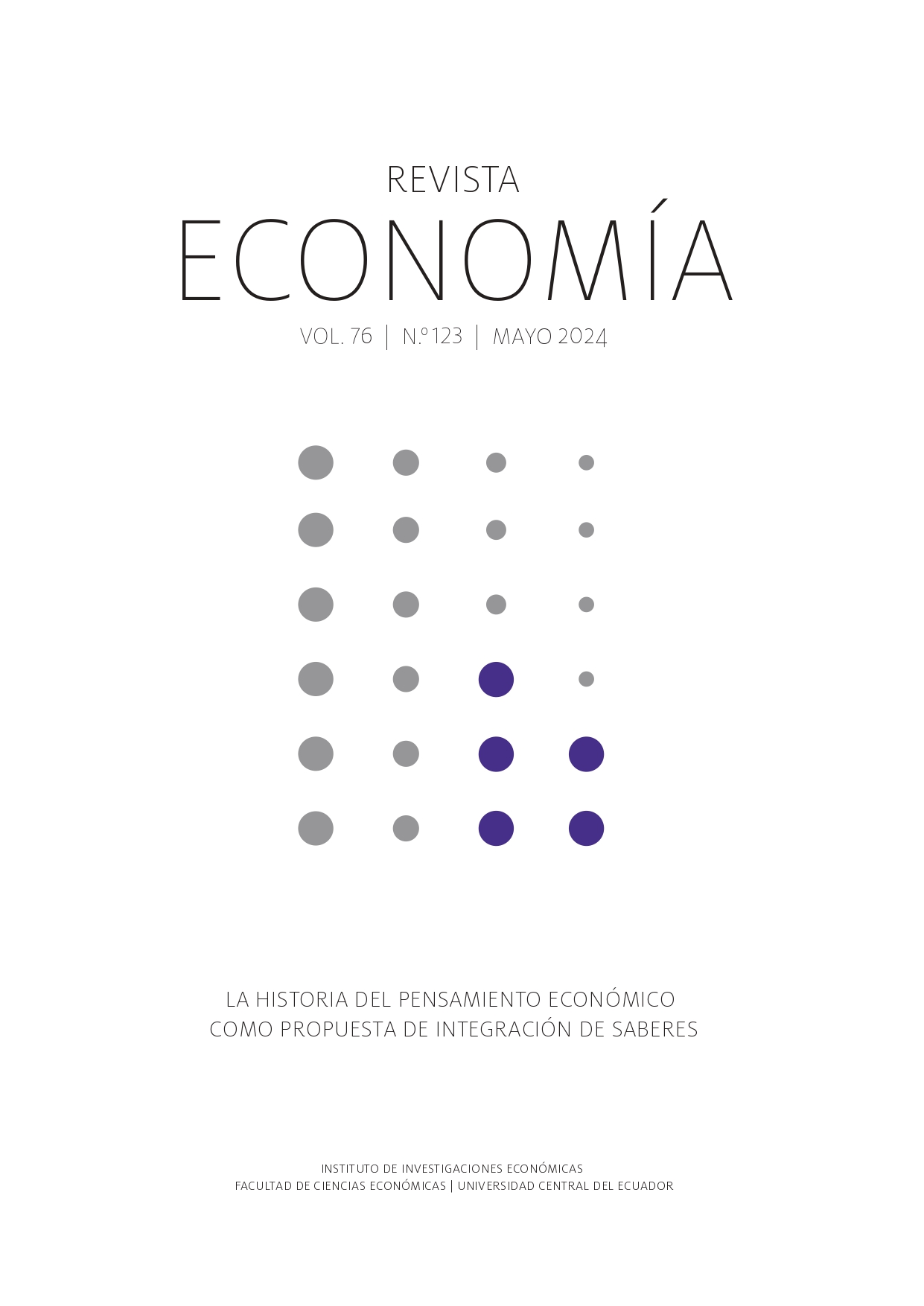LA COMUNIDAD EN LA HISTORIA DEL PENSAMIENTO ECONOMICO, UNA LUCHA POR SU RECONOCIMIENTO
Main Article Content
Abstract
This article describes the history of economic thought as a dialectical flow of thesis, synthesis and antithesis. In it, the individual and the community struggle for recognition in a process were the synthesis scratches greater degrees of freedom to a reality in which both are embebbed in each other. First, we describe the flow of theories. Orthodoxy, being the stablishment over economic ideas, tries to survive, and finds a way to adapt without modifying its assumptions. However, we will demonstrate quantitatively and comparatively, using a multivariate model, that the community is a reality beyond the sum of the parts and that it feeds the parts to make the sum. The sumak kawsay Index built with 4 dimensions will be presented: Community, Family, Chakra (land) and Biodiversity.
Downloads
Article Details

This work is licensed under a Creative Commons Attribution-NonCommercial 4.0 International License.
The authors who publish in this journal accept the following conditions:
- The authors retain the copyright and assign to the Economics Magazine the right of the first publication, with the work registered under Creative Commons Attribution-NonCommercial 4.0, which enables third parties to redistribute, commercial or non-commercial, of what has been published as long as the article circulates completely and without changes.
- Authors can make other independent and additional contractual agreements for the distribution of the article published in this journal (for example, add it to an institutional repository or publish it in a book) as long as they clearly and clearly specify that the article was published for the first time. once in Revista Economía. In case of reproduction, a note similar to the one presented below must be included: This text was originally published in the Revista Economía No.…, volume…, number of pages, year of publication.
- Authors are suggested to publish their work on the internet (for example, on institutional or personal pages) of the final version published by Revista Economía since this can lead to greater and faster dissemination of the published article.

